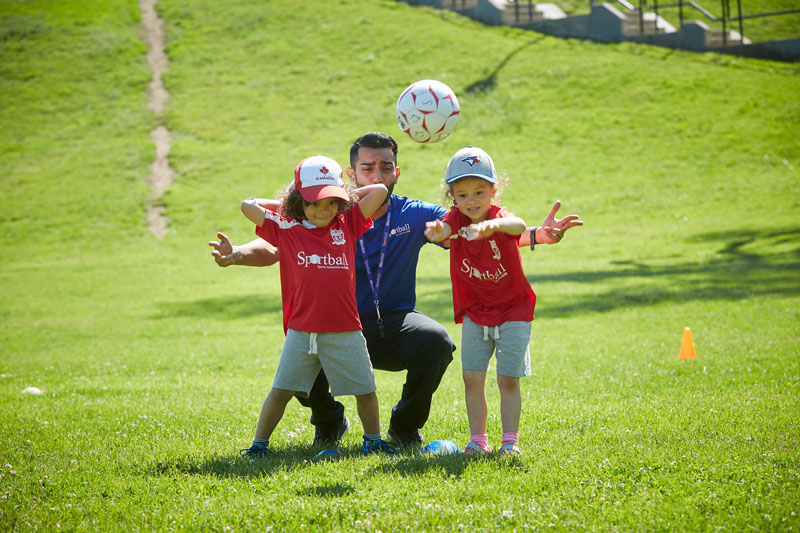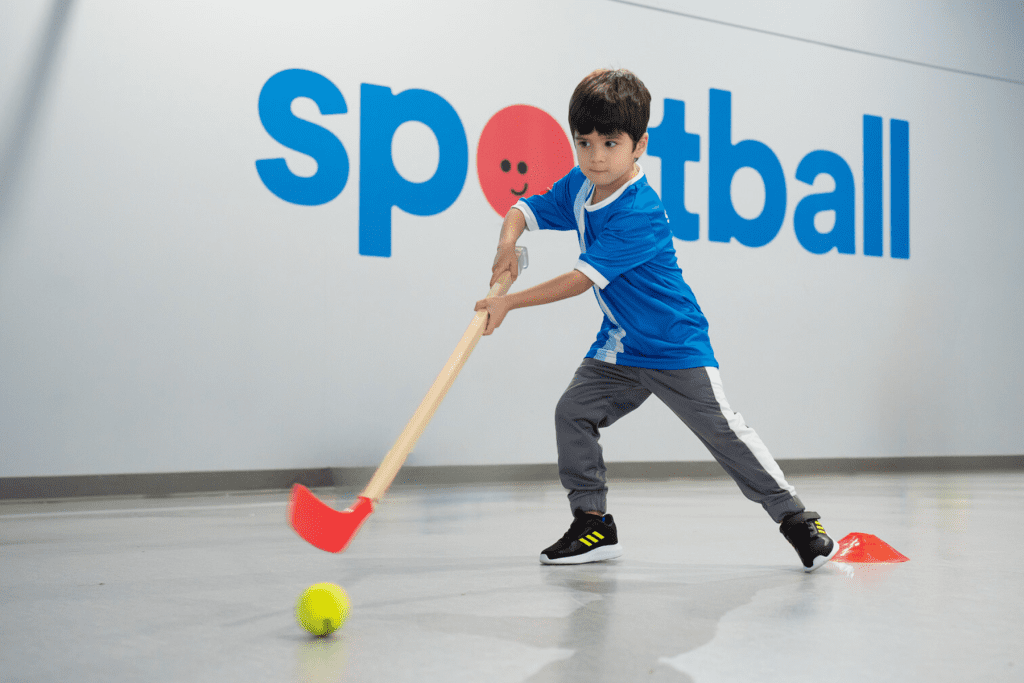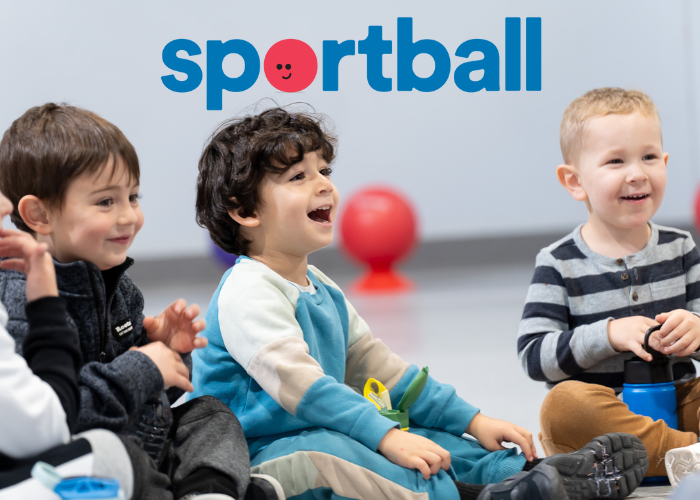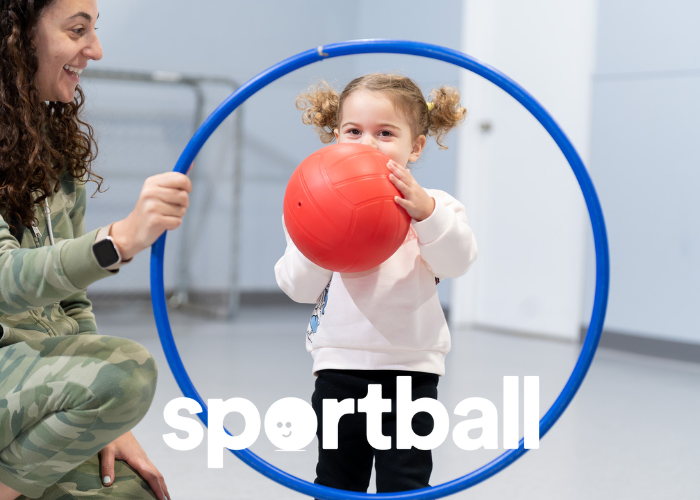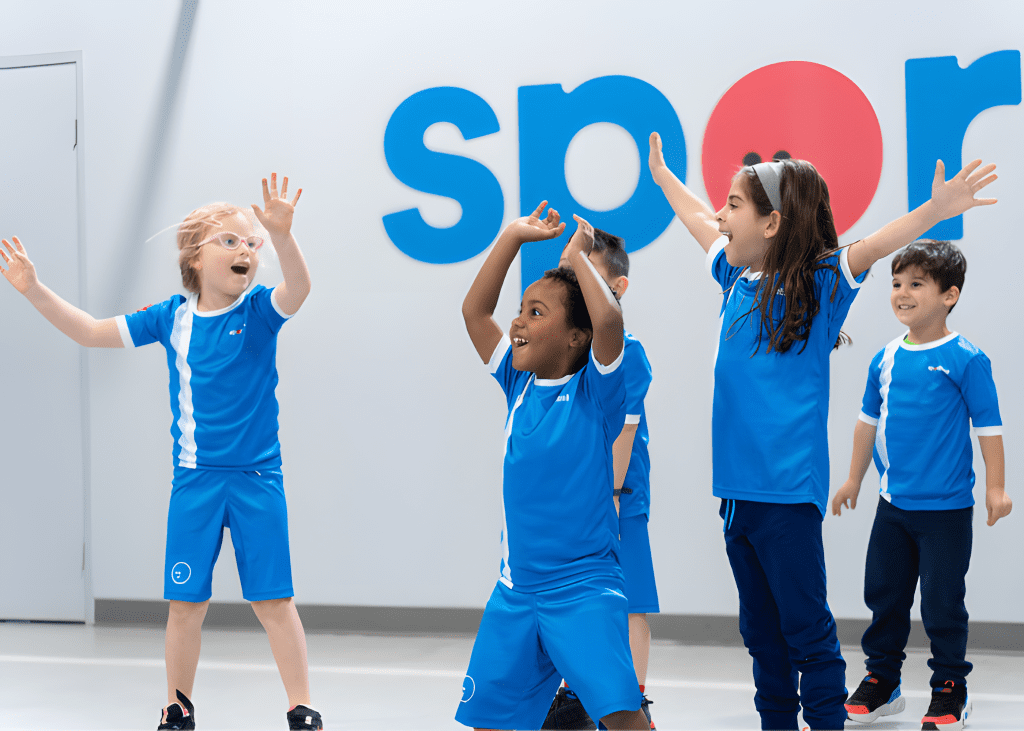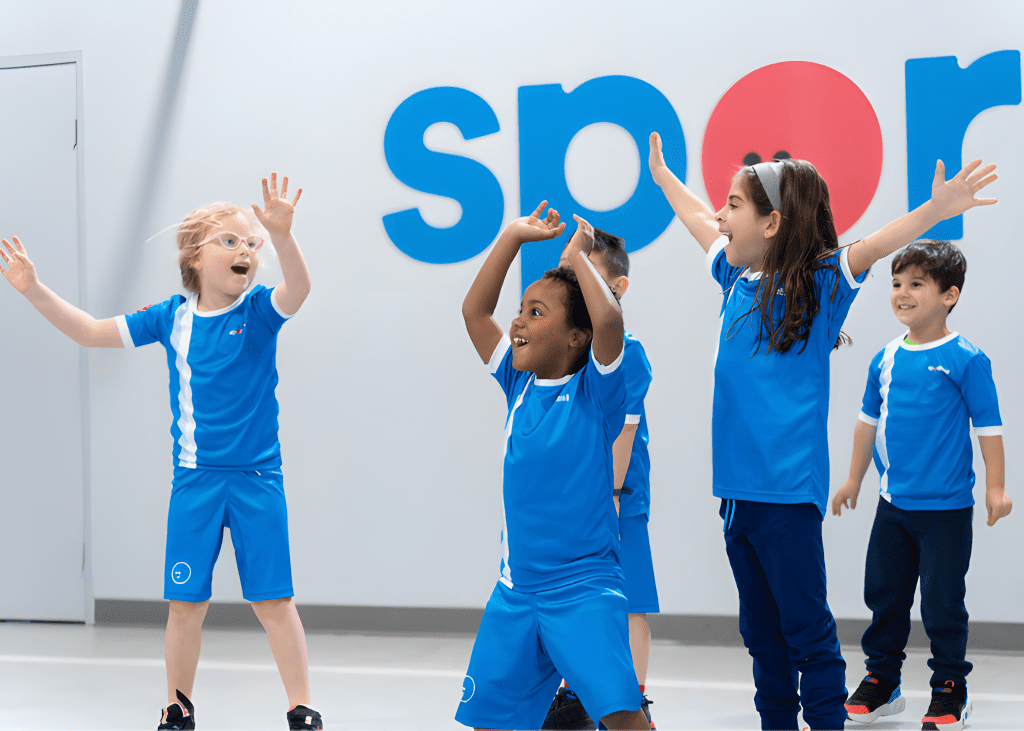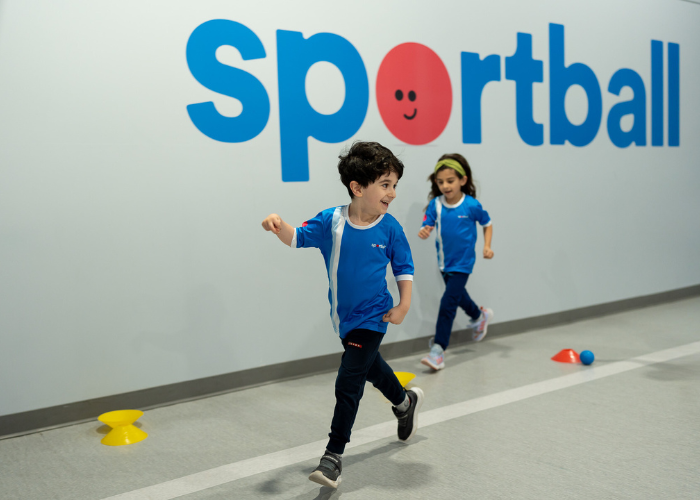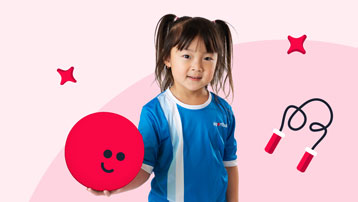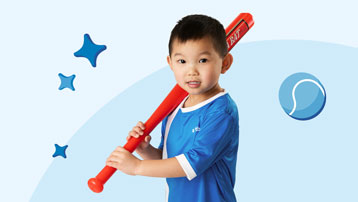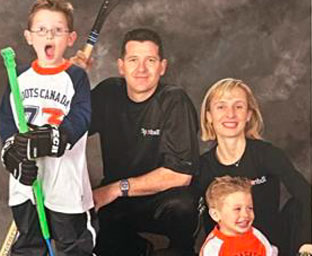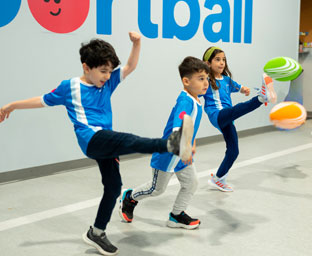Organized sport programs are evolving and being promoted not only as outlets to be physically active, but as arenas to teach children important life and social skills. While there are countless sport and physical activity programs around to choose from, they each vary to the extent that they successfully achieve both of these objectives. At Sportball, we set ourselves apart from other programs and ensure our participants are equipped with skills for life through our methodology called Coaching with Purpose. Coaching with Purpose ensures that each game, skill, activity, and instruction given in Sportball classes has a specific purpose and expected outcome. These outcomes include the acquisition of:
- Gross-Motor Skills
- Sport-Skills
- Pro- Social Skills
At Sportball, we ask coaches to complete an extensive training and certification program to ensure that they know how to teach these three objectives to children at five different developmental stages. Informed by pediatric research, these stages are: First Steps (16-24 months), ABC’s of Sport (2-3 years), Fundamentals (3-6 years), Skills and Team Play (6-9 years), and finally Learn to Lead (9-12 years). At each level, specific sport, gross-motor, and social skills are focused on, which progress in difficulty and complexity. The following sections will outline how each of these outcomes are intentionally targeted during Sportball programming and drills.
Gross-Motor Skills
Gross-motor skills are fundamental movement skills such as walking, running, or jumping, which collectively build children’s Physical Literacy. Different gross-motor skills are targeted in each Sportball class, building upon skills successfully mastered in earlier classes. For instance, during a First Steps class geared towards children 16 – 24 months old, children may be asked to shoot a ball with two hands through a large vertical hoop. When doing so, toddlers practice four key gross-motor skills, including: grasping, swinging, throwing, and shooting. In later classes (i.e., ABC’s of Sport), coaches enhance the difficulty of this task, asking toddlers to aim the ball through a horizontal hoop – which requires more concentrated effort including precision, focus, and coordination. Progressive skill development ensures that each participant is optimally challenged, increasing their confidence and mastery with every successful attempt.
Sport Skills
Alongside gross-motor skills, Sportball’s unique Multi-Sport program structure ensures that each class focuses on the basic concepts of one of eight different sports. The eight core sports include soccer, baseball, basketball, football, hockey, volleyball, golf, and tennis. In a class focused on basketball (for example), children may be asked to dribble a ball on the spot. To capture the attention of young children (i.e., those in First Steps, ABC’s, and Fundamentals), Sportball coaches will introduce the drill using creative, imaginative storylines. For instance, when practicing dribbling- balls are described as raindrops that children must continuously push out of their hands to ‘make it rain’. Additionally, when coaches demonstrate each drill, they introduce keywords that children are encouraged to repeat while practicing the drill independently, such as ‘dribble,’ ‘hand on top,’ and ‘push.’ At ensuing levels, basketball dribbling drills progress in difficulty, requiring children to dribble while travelling and against a partner.
Pro- Social Skills
Finally, in Sportball classes, each skill and task is associated with a specific pro-social skill. When dribbling a basketball in the above example, children are taught the importance of following instructions from a coach, focusing, waiting in line and taking turns. As children progress in levels, Sportball coaches emphasize the need to work with others as a team, to exhibit leadership skills, and how to tactfully navigate winning and losing. Our explicit attempts to teach children social skills through sport are inspired by research that has highlighted the important role that coaches can play in intentionally teaching social and life skills in sport, which can be drawn upon in other non-sport contexts (e.g., school, home, among peer groups). Danish and colleagues (2004) have defined these life skills as:
“Skills that enable individuals to succeed in the different environments in which they live, such as school, home and in their neighborhoods.1”
Collectively, the social, gross-motor, and sport skills that kids gain through progressive Sportball classes give them skills for life –beyond the gymnasium or court. This carefully developed program structure also ensures that children are continuously building their confidence through mastery of skills. Visit us at www.sportball.ca to learn more about program offerings in your area unique to your child’s current age and developmental needs.
Articles cited:
1Danish, S., Taylor, T., Hodge, K. and Heke, I. (2004). Enhancing youth development through sport. World Leisure Journal, 46(3), 38–49.
